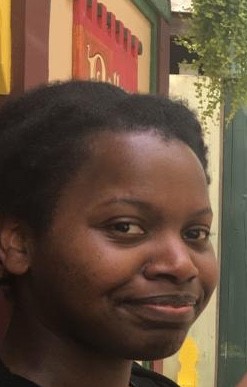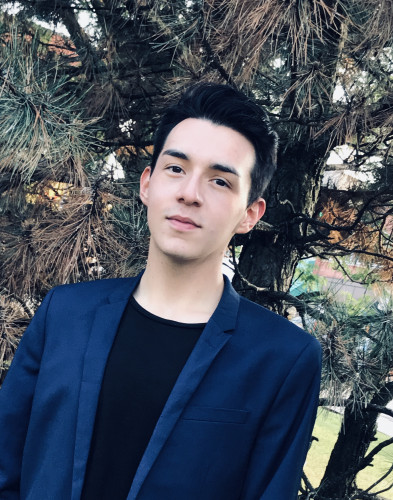The Project
This project, supported by the Library Engagement Fellows Program, asked itself: what are the needs and opportunities within graduate curricula in the humanities and social sciences for co-curricular digital scholarship education that could be offered by the University Michigan library? This project defines digital scholarship as “Scholarship enabled by and shared through digital media and tools, that is able to ask new questions through digital methods.” While there have been various past and current efforts related to digital scholarship (programming as well as initiatives to improve resources currently offered), this research project sought insight from graduate students in particular. Insight gathered from this project would provide the library with information on what graduate students need as well as possible changes that could be made to satisfy these needs.
This project is currently being conducted in the midst of large changes currently taking place. There are plans to change the library website, and Covid-19 has recently changed the way in which students access library resources. In that sense, this project also concerns itself with the way in which digital scholarship is described and articulated both by graduate students and the library. How is digital scholarship presented by the library, and what are the best ways to provide information on digital scholarship and resources? What words are graduate students using to describe their needs, and how does the library advertise and talk about what they offer? For this project, we took a two-method approach: qualitative interviews with campus faculty, students, and staff members; and a graduate student survey.
We began this project learning more about resources for digital scholarship offered by the University of Michigan library and throughout campus. We researched other university systems to gain a sense of what support systems they have in place. As we gained a sense of current resources offered, we began planning for qualitative interviews. We conducted ten interviews with graduate students, campus staff, and faculty at the University of Michigan. These interviews helped us gather insights on digital scholarship at the University of Michigan and largely shaped the questions that would be asked in our student survey.
We wanted to further explore the trends we observed from conducting these interviews as well as see how widespread they were. Therefore, we began designing a Qualtrics survey to be sent out to graduate students. The goal of the survey was to solicit feedback on the effectiveness of existing library resources and programming for digital scholarship. We formulated questions based on information gained from individual research and qualitative interviews.We worked on multiple drafts in collaboration with PhD candidate Marisol Fila. We consulted with many people throughout each stage of the process, including members of the Library Digital Scholarship Service Team, Craig Smith (Assessment Specialist), and Diana Perpich (Education Technologies Librarian).
We have gained a greater understanding of digital scholarship on campus and identified recurrent themes among the interviews. Notable trends have been identified regarding the varied understandings and levels of familiarity with digital scholarship, decentralization of resources across campus, and exposure of graduate students to possible research tools and digital scholarship programming. The content of these interviews are continuously referred to and largely inform the graduate student survey, and members of the Library Digital Scholarship Team will continue returning to them throughout the trajectory of this project.
While we had previously aimed to launch the survey this past March, this was postponed for reasons related to Covid-19. We hope to launch this survey sometime in the near future. Student responses will inform us with the following information: student familiarity and experience with digital scholarship tools and methods, effectiveness of current resources and programming offered by the University of Michigan library system, and potential improvements that could be made with regard to resources and programming. We acknowledge that potential results from survey responses would be affected by current events related to Covid-19, and therefore anticipate a greater need for and emphasis on virtual programming and access to digital scholarship resources.
Craig Smith and Diana Perpich assisted us throughout the process. We met with Craig several times throughout the year to discuss the progress of our survey. After an initial meeting with our mentors and Craig, we revised the survey. As we learned, creating a good survey is very difficult. It is an iterative process, where we spent a lot of time going over questions to make sure that they were clear and concise. During our meetings with Craig, he helped us think about how to phrase questions to get the right type of information.
After several meetings, we decided that we should also consult Diana Perpich about our survey and about using Qualtrics. During our meeting we went through the survey and learned about all the functionality that the software has to offer. She also helped make our survey more accessible so that it would be easier to take and navigate.We changed several features to make it more accessible for ereaders and those with visual impairment. Though it was brief, we believe that the survey was better for that meeting.
Next Steps
The next steps of our project include analysis of the interviews, deployment of the survey, and more interviews. We conducted ten of interviews that need to be transcribed and coded. While some of the findings informed our survey, the interviews still need to be thoroughly analyzed. These interviews were insightful and will be relevant additions to the final report. Our survey needs to be updated to incorporate the University of Michigan’s response to Covid-19. Which could include additional questions about virtual instruction or consultations and the presence of digital scholarship of the library website.
While the survey will provide some quantitative information about interest in certain initiatives, they do not give the rich contextual information that interviews can. Our grant funds will be used for incentives for the survey. After the survey we will need to analyze the data to see what type of response we get. Using the survey we hope to recruit more graduate students who would want to be interviewed will be done remotely. These additional interviews will add another layer of qualitative analysis that would be beneficial to the study. While we did interview a few graduate students, we were not able to get the amount that we wanted.
While we have some preliminary recommendations, these will be revised due to the effects of Covid-19 and the results from our survey and additional interviews. These new recommendations will reflect the need for digital scholarship to be a bigger presence on the library website. These could also include the utilization of more online instruction and workshops, creating content, and potentially participating in the MOOC (Massive Open Online Course). With the survey and the graduate student interviews, we hope to be able to narrow down what type of content is needed or wanted from students. Those recommendations will also be influenced by the administrative decisions by the library and the university.
This has been a very rewarding experience and has been made better with all the meetings with our mentors, Anne Cong-Huyen, Catherine Morse, and Maura Seale. Their support has helped us throughout this journey, especially at the bumpy parts. Craig and Diana, were extremely helpful in crafting our survey and making it ready to send out in the fall. Thank you to all those who have helped us. We can’t wait to see how far this can go!

Belinda Bolivar is a Library Engagement Fellow and Graduate Student at the University of Michigan

Emmanuel Navarro is a Library Engagement Fellow and a Graduate Student at the University of Michigan